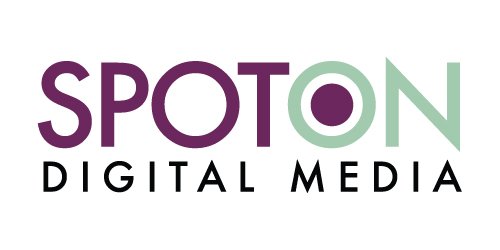SEO & SEM - One, both or neither?
When trying to decide on the appropriate digital marketing strategy, it can be overwhelming to sift through the many options of what makes the most sense for your business needs and goals. Search Engine Optimization (SEO) and Search Engine Marketing (SEM) are options you might hear thrown around often in the marketing world as viable tools to garner attention from your audience, but many aren’t totally sure what they even mean much less which one or if the combination of the two makes sense for their company. Let’s clear up what SEO and SEM are and how they’re used to help you grow.
Search Engine Optimization
Plainly put, Search Engine Optimization means getting traffic to your website organically (for free) by showing up in the SEPRs (Search Engine Results Pages) on Google, Bing and Yahoo. There’s an ongoing battle to be on Google’s first page of desired keyword search results because 75% of search users don’t scroll past page one of search results. These first 10 organic positions can be super competitive to secure. Ongoing SEO efforts support getting your content to rank higher keeping you visible in search results. Technically, search engines want what’s best for their users so they have their own scores for your content to be sure they are serving up the best content on page one for their customers to successfully find what they are researching. There are basics to follow with technical foundational steps like proper titles, tags and descriptions for your site’s current pages. Along with an audit of any broken links, heavy images or solving other identified errors your site may be returning can quickly increase your site’s score and search credibility. But it definitely doesn’t stop there. Having a strong, ongoing content strategy with content types like blogs, vlogs, white papers and infographics among others will nicely support an SEO effort to let Google and other search engines know that you are serving up credible content for your audience.
Top two SEO takeaways:
1. A content strategy is essential.
2. SEO takes time to see results. Though it offers a ton of opportunity for website traffic, it doesn’t happen overnight, so be ready to commit time to content creation and technical optimizations before you start seeing real results. The good news is, if done right and consistently, you’ll see what our clients see with organic traffic results driving real prospects to their sites with year-over-year results boasting 100-300% growth.
Search Engine Marketing
SEM, Search Engine Marketing, is often referred to as paid search - you pay a fee in order to show up on page one of the SERPS resulting in higher probability of a click to your site. SEM is often paid for on a click basis, often referred to as PPC - pay per click and these ad positions are easily identified on search results with the word “ad” right in front. Search PPC is an auction - you bid on keywords specific to what you desire to rank for and you compete for exposure for your desired keywords. The two main factors that determine if your company shows up in these paid positions is how much money you’re willing to bid per term, and the quality score of the page your ad takes the user to - does the content on that page match the content to the search term your bidding on and if you’re really serving the audience.
The nice thing about SEM is that you’re likely reaching an in-market buyer doing research about a very specific topic. You can quickly extend your reach to these prospective customers. In addition, paid search is just one type of online advertising to consider. You can and should also explore display advertising, social advertising among others.
Top two SEM takeaways:
1. Do your keyword research first to know if you have enough budget to even compete in your industry with sufficient share of voice.
2. Don’t set it and forget it. SEM is an active auction needing frequent touch points from experts, and in some cases automation combined with a human touch that truly understands how to optimize these advertising campaigns.
Got it? SEO, Search Engine Optimization, is an ongoing content optimization effort and SEM, Search Engine Marketing, is a paid search advertising effort. Both are great marketing tactics to drive traffic to your site and grab the attention of your prospective customers. Based on your company, your audience and how competitive your desired keywords are SEO and SEM combined may be a winning mix. In all recommended instances of your site being a primary marketing tool, you’ll want to be sure you’re following SEO best practices. Just like with any other marketing tactic, both require a thoughtful strategy in order to see success. We caution just jumping in. Instead, consult with our team to vet the strategy with a SpotOn execution. Let us help.

